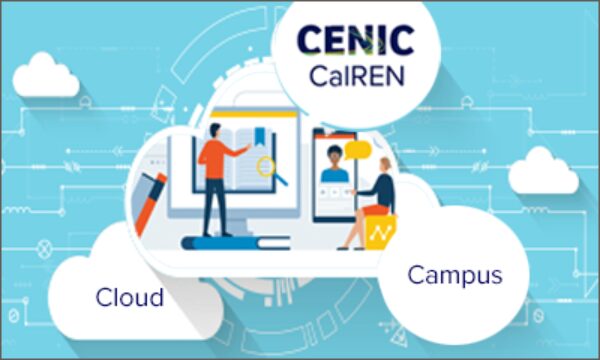The University of California, Santa Cruz Cancer Genomics Hub (CGHub) has been honored by the Corporation for Education Network Initiatives in California (CENIC) as the recipient of the 2013 Innovations in Networking Award for High-Performance Research Applications.
UCSC has built CGHub, a 5-petabyte database, to store tumor genomes sequenced through National Cancer Institute projects. Through this effort, CGHub is tackling the significant computational challenges posed by storing, serving, and interpreting cancer genomics data.
The CGHub mission is to facilitate the work of scientific researchers. It is designed to be a fully automated resource, appearing to the user as an extension of the user’s home institute computing system. Of course, making such vast amounts of data accessible to collaborating researchers nationally and internationally requires advanced networking such as that provided by CENIC to allow the research to be carried out as seamlessly as possible.
The project is led by UC Santa Cruz bioinformatics expert David Haussler. Haussler is a distinguished professor of biomolecular engineering in the Baskin School of Engineering at UCSC and a Howard Hughes Medical Institute investigator. “By providing researchers with comprehensive catalogs of the key genomic changes in many major types and subtypes of cancer, these efforts will support the development of more effective ways to diagnose and treat cancer,” said Haussler.
Haussler’s group built CGHub to support all three major NCI cancer genome sequencing programs: the Cancer Genome Atlas (TCGA), Therapeutically Applicable Research to Generate Effective Treatments (TARGET), and the Cancer Genome Characterization Initiative (CGCI). TCGA is a collaborative effort led by NCI and the National Human Genome Research Institute to map the genomic changes that occur in at least 20 major types and subtypes of adult cancer. The TARGET program is a related effort focusing on the five most common childhood cancers, and the CGCI makes available genomic data from HIV-associated cancers and certain lymphoid and childhood cancers.
Innovations in Networking Awards are given annually by CENIC to highlight exemplary innovations which leverage ultra high-bandwidth networking, particularly where those innovations have the potential to revolutionize the ways in which instruction and research are conducted or where they further the deployment of broadband in underserved areas.
* CGHub was built and is run by the University of California Santa Cruz and has been funded in whole or in part with Federal funds from the National Cancer Institute, National Institutes of Health, under Contract No. HHSN261200800001E.
Related blog posts
Network Traffic Analysis Shows Changing Activity Patterns During COVID-19 Pandemic
Even as campuses, schools, libraries, and cultural institutions have closed amid stay-at-home orders, CENIC’s networks have remained a vital part of the Internet ecosystem for online learning and community engagement, remote access to research data and specialized computing facilities, academic medicine and clinical care, and work-from-home operations.
Understanding Network Impacts of Increased Online Learning
While COVID-19 is creating unprecedented uncertainty, Research and Education Networks such as CENIC’s CalREN will play an important role in supporting our educational institutions as they increasingly move to online learning. CENIC has prepared this information as a resource for members who have moved to, or are contemplating moving to, online instruction.




